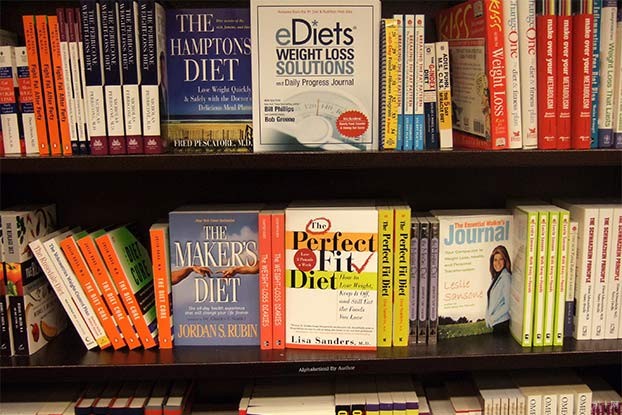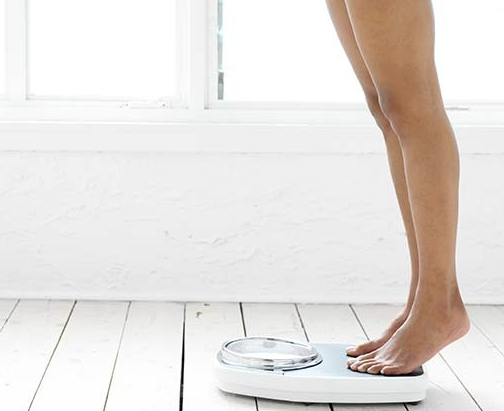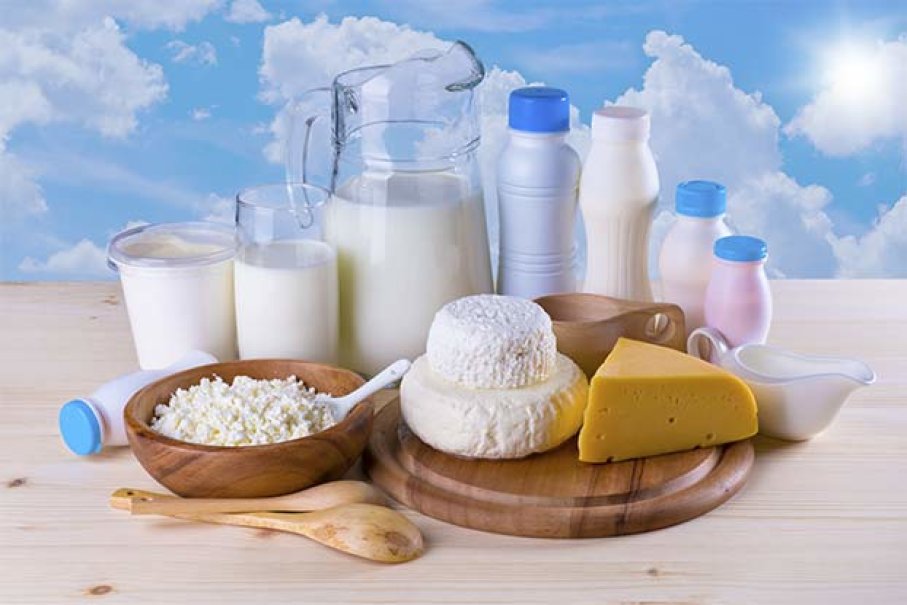(单词翻译:单击)
Back in 1905, future U.S. President William Howard Taft worried about so much about his girth − he weighed in excess of 300 pounds (136 kilograms) − that he began corresponding with Dr. Nathaniel E. Yorke-Davies, an English weight-loss guru. Yorke-Davies put Taft on a strict low-carb, low-fat regimen that included a three-page list of foods he was permitted to eat and ones he had to avoid. It actually worked − Taft lost 60 pounds (27 kilograms). Feeling successful, Taft then strayed from the diet and got even heavier than he was before.
早在1905年,准美国总统威廉·霍华德·塔夫脱就对自己的腰围忧心忡忡,你知道吗?他的体重已经超过了300磅(136kg)!于是他开始同英国减肥权威纳撒尼尔·E·约克戴维斯医生深入交流,以减掉自己身上那些肥嘟嘟的脂肪。纳撒尼尔医生给塔夫脱制订了一个低碳水化合物低脂肪摄入的减肥方案,足足列出了三页清单,上面满满当当地写着什么食物可以吃,什么食物连碰都不要碰。塔夫脱看到这个减肥方案,自己也觉得信心满满,仿佛体重趋于正常已经触手可得,可他却并没有坚持到底,导致抛弃减肥食谱大快朵颐的他甚至比以前还要胖了。事实证明这个定制的养生法非常的有用,塔夫脱的体重减轻了60磅(27kg)。塔夫脱感受到了成功的喜悦,然而却偏离了饮食,变得比以前还重。
Sounds familiar, doesn't it? Since Taft's time, Americans have followed other diet doctors, and tried various sorts of exotic regimens − ranging from the 1930s Hollywood Diet, which emphasized eating a grapefruit with each meal to today's Paleo Diet, which supposedly aims to emulate our hunter-gatherer ancestors. We've heard plenty of weight-loss advice over the years as well, about which foods to eat, when to eat them and which combinations to avoid. And we've seen weight-loss experts give conflicting opinions or change their minds about what's really making us fat. In truth, a lot of popular ideas about weight loss and gain, including ones that once were championed by medical experts, haven't held up to scientific scrutiny. Here are 10 truisms that are now being questioned.
这种情况似曾相识吧?从塔夫脱那个年代开始,美国人听从各种各样减肥医生提供的五花八门的减肥方案,尝试了各种各样独特的减肥法——从1930年代强调每一餐都要吃葡萄柚的“好莱坞饮食法”到今天这种模仿采集狩猎的祖先饮食结构的“原始人饮食法”,花样繁多,琳琅满目。我们已经道听途说太多的减肥方案了,该吃什么,不该吃什么,什么食物与什么食物不能同时摄入等等,我们也已经看到太多出自减肥专家之口的观点了,他们各执一词也好,他们针锋相对也罢,可到底是什么才导致我们发胖的啊!这些年来我们也听说了各种各样的减肥方法,包括该吃哪些食物,什么时候吃,哪些不能同时吃……同样,我们也见证了不少专家自相矛盾的观点,或者他们也没有搞清楚到底是什么让我们长胖的。实际上,包括那些曾经被医学专家认可的关于长胖和减肥的主流观点在内,几乎没有一个有相对科学的证明。以下10个是我们老生常谈的观点,现阶段却备受质疑。
10.To Lose Weight, Follow the Right (Fad) Diet
10.想要瘦,就得追随“正确的”(风靡一时)饮食法

Over the years, experts have preached the benefits of all sorts of diets, from the cabbage soup to the Atkins to the Mediterranean diets. Back in the 1990s, one of the hottest fads was the zone diet, which called for a precise ratio of carbohydrates, fat and protein at each meal. In the 2000s, actress Gwyneth Paltrow championed the macrobiotic diet, a regimen based upon whole grains and vegetables. Makes you wonder which ones really work.
近些年来,从阿特金斯卷心菜汤法到地中海饮食法,专家们一直在鼓吹各种各样减肥饮食法的优点。早在上世纪90年代,最时新的饮食方法为区域节食法,该节食法对每一餐摄入的糖分、脂肪和蛋白质的配比规定都相当苛刻。在2000年代,演员格温妮丝·帕特洛着力提倡生机饮食法,是一种以所有谷物和蔬菜为基础的饮食法。鱼龙混杂的饮食法,让你完全不知所措。
According to a 2013 article in the Journal of the American Medical Association, there's no scientific evidence that any one of these weight reduction plans is better than the others. An analysis of numerous randomized trials of various diets showed that the differences in their effect on metabolism and body weight was small − the average variation was only 2.2 pounds (1 kilogram) − and inconsistent. However, that doesn't mean that following a diet is necessarily a bad thing. The one consistent effect that the researchers found was that following any sort of reasonable diet and exercise plan would lead to weight loss and improvement in health.
据《美国医学协会杂志》2013年的一篇文章报道,没有科学依据证明哪一个减肥的方法是最好的。针对各种饮食法,专家们进行了大量的随机临床试验,分析表明,这些饮食法对人体新陈代谢及体重的影响大同小异。平均变量参差不齐,但均在2.2磅(1kg)左右。然而,也不是说上面所说的这些饮食法就一定是件坏事。研究人员一致认为,只要是合理的饮食方法和锻炼计划,都可以达到减肥及改善自身健康状况的目的。
9.Better to Lose Weight Gradually Than Rapidly
9.减肥要循序渐进,可不要追求速成

This is something that you'll hear repeated a lot, and it sounds logical. After all, isn't it risky to lose a lot of weight fast? Many people have tried really extreme measures − so-called "crash diets" where you might eat just 800 calories a day, combined sometimes with ingesting odd stuff such as cayenne pepper. Doctors worry, and rightfully so, about dieters eating so little that they deprive their bodies of vital nutrients such as potassium, magnesium and copper, which can cause heartbeat irregularities and other scary side effects.
想必这句话总是不厌其烦的在你脑海中回荡,不过好像说的也真像那么回事。可说到底,快速减肥是不是有风险的呢?我们身边不少人都尝试过那个“地狱式减肥法”吧,它要求我们每天的能量摄入只能在800卡路里以内,甚至有时还要摄入像辣椒粉这样奇怪的东西。这样极端的减肥法让人心力交瘁。医生质疑到,如此少量的饮食会剥夺人体对钾、镁、铜等重要营养元素的摄取。长期缺少这些营养元素,将会一定程度上引起心律不齐等一些可怕的副作用。
Even when aggressive diets are safe, health experts have said they usually are counterproductive. The reasoning was that rapid weight loss slowed down your metabolism, so over the longer term, you'd stop losing weight and even start gaining it again. But research doesn't back that argument up. According to a 2013 New England Journal of Medicine article, experimental trials showed that people who achieve rapid weight loss actually tended to weigh less at the end of longer-term follow-ups as well. "A recommendation to lose weight more slowly might interfere with the ultimate success of weight-loss efforts," the researchers concluded.
即使这样激进的减肥法是安全的,健康专家还是表示,这样的做法往往会适得其反。其理由是,激进而快速的减肥减缓了身体新陈代谢的速度。长此以往,一旦恢复饮食,你还是会迅速复胖。但有研究并不支持这一观点。2013年,发表于《新英格兰医学杂志》的一篇文章中写道,实验表明,那些快速减肥的人往往在减肥之后的长期内体重依然会有少许的减少。研究总结到,“过慢的减重会妨碍减肥的最终成功”。
8.Eating After 8 p.m. Makes You Fatter
8.晚上八点以后再吃东西,可就要变肥了

This is another one that seems to make perfect sense. Pioneering nutrition guru Adelle Davis famously advised people to eat like a king at breakfast and a pauper at dinner. And we've all heard the adage that if we eat too much too late in the evening, our sleeping (or TV-watching) bodies won't burn many calories, and we'll only end up storing more fat.
深夜馋虫复苏,来顿美餐刺激味蕾真是完美享受。著名的营养学家阿德勒·戴维斯曾提出,早餐是天食,要像国王的御膳般丰富;而晚餐是鬼食,如乞丐般饥肠辘辘最好。众所周知,大晚上吃太多然后睡觉或者躺在床上看电视,热量无法消耗就会转变成脂肪堆积在体内。
But again, science doesn't back up that belief. In the mid-2000s, researchers from Oregon Health and Science University charted the eating habits of monkeys as part of a study on the effect of menopause on weight gain. They discovered that when left to their own devices, the primates ate on different schedules, with many consuming most of their food in the evenings and late at night. There turned out to be no correlation between weight gain and the time of feeding. There is a caveat however: People tend to snack after dinner while watching TV or surfing the net. If you do that in addition to your regular meals, the increased caloric consumption will show up on the scale.
然而这一说法并没有得到科学证实。大约在2000年,俄勒冈健康与科学大学的研究人员将对猴子日常饮食习惯的实验数据绘成分布图表,以此研究处于更年期的母猴饮食习惯对其自身体重的影响。研究发现,如果放任这些灵长目动物自主进食,它们的进食都偏向分布在晚间或深夜,并且体重的增加和进食时间没什么关系。尽管如此,还是要提醒一下:晚饭后人们总喜欢边看电视或上网再边吃点零食消遣,最好别这样,否则多余的卡路里就要变成身上的赘肉啦。
7.Beware of the Freshman 15
7.初入大学第一年,当心增重15磅

For decades, it's been accepted as truth that college students (especially women) will pack on the pounds during their first year of college. The phenomenon was once known as the "freshman 10," (meaning, a 10 pound weight gain) but since the late '80s, it's escalated to the "freshman 15," which we suppose is the equivalent of dietary grade inflation. The truism is still taken so seriously that the news program "Good Morning America" did a 2014 segment titled "Beat the Freshman 15" and offered helpful tips such as, "The dining hall is not an all-you-can-eat steakhouse".
进入大学的第一年是体重增长相当疯狂的一年,女生更是明显。这似乎是全世界大学生都会经历的一个过程,这一现象一度被称为“发胖症(freshman 10)”(freshman 10,意为初入大学第一年会增重10磅),但自上世纪80年代起,这一现象便升级为“发胖症(freshman 15)”,从科学角度上说是因为饮食分数的膨胀。这种现象由来已久,在美国好像已经司空见惯。《早安美国》去年制作了一档新节目《走吧!Freshman 15》,里面给出了一些相当实用的建议,其中一条“别把食堂当成美味天堂”真是直击大学生的要害呀。
However, the "freshman 15" is really a myth. In a 2008 study published in the Journal of American College Health, 121 freshmen at a northeastern university reported an average weight gain of 2.7 pounds (1 kilogram), with men (3.7 pounds) actually gaining more weight than women (1.7 pounds). Only half of the students gained weight at all, and the gains were about 7 pounds on average. A third of the students had no weight gain, and 15 percent actually lost weight during freshman year. Yes, you'll probably eat more at college than you did in high school (the 3- pound gain is still more than the average person gains in a year), and you should be careful with your diet, but chances are you won't pork up by 15 pounds.
然而,这种现象也只是奇谭而已。2008年,发表在《美国大学健康》期刊里的一份实验报告显示,美国东北一所高校里,121名新生调查对象一年内平均增重2.7磅,约1公斤,而且男生(3.7磅)比女生(1.7磅)增重更多。这些学生中,只有一半体重明显飙升,平均在七磅以上,三分之一的学生体重没有明显改变,甚至有15%的学生体重反而出现了下降。进入大学,校园环境和学习氛围相比高中宽松很多,许多学生胃口越来越好,但还是要有所节制,不然你可能增重都不止15磅哦!
6.You're Gaining Weight Because You Lack Dairy
6.你之所以胖,是因为你缺乏乳制品

This one might have gotten started in the mid-2000s, when a study found that obese adults, who ate three 6-ounce (170-gram) servings of fat-free yogurt as part of a reduced-calorie diet, lost 22 percent more weight than dieters who simply cut calories. Even more appealingly, the study, which was funded in part by a company that manufactures yogurt, found that the yogurt eaters lost more fat in the belly area than the control group. And that's what everybody wants, right? The hypothesis was that calcium and protein from low-fat dairy products somehow helped to burn fat and melt off the pounds.
这项研究可能开始于21世纪中期,研究发现,肥胖的成年人吃3份6盎司(170g)脱脂酸奶作为减少卡路里饮食的一部分,比那些靠单纯减少卡路里摄入的节食者减重效果要好的多。甚至更吸引人的是,这项由酸奶生产制造公司出资的研究,发现酸奶食用者腹部减重比控制奶制品的人群要多,这不就是每个人所希望的吗?该假说声称,低脂奶制品中的钙和蛋白质从一定程度上有助于燃烧脂肪,减少体重。
Thanks, yogurt company! That sounds like a pretty good deal, since yogurt tastes better than some of the other exotic concoctions that dieters are willing to consume. But a study published in 2012 analyzed data from previous studies and found that dairy consumption, in itself, didn't have any significant effect on body weight or fat loss. Also, it had only "modest" benefits as part of a reduced-calorie regimen.
真是太感谢酸奶公司了!这听起来多棒啊,毕竟,酸奶比起那些节食者们选择的奇奇怪怪的调制食物味道好多了。但2012年公布的一项研究通过分析以往研究的数据表明,就乳制品本身而言,不会对体重或脂肪产生任何影响。此外,在我们控制摄入卡路里的计划中,它只是一个不错的选择罢了。
审校:省略珺 编辑:烟囱 来源:前十网


